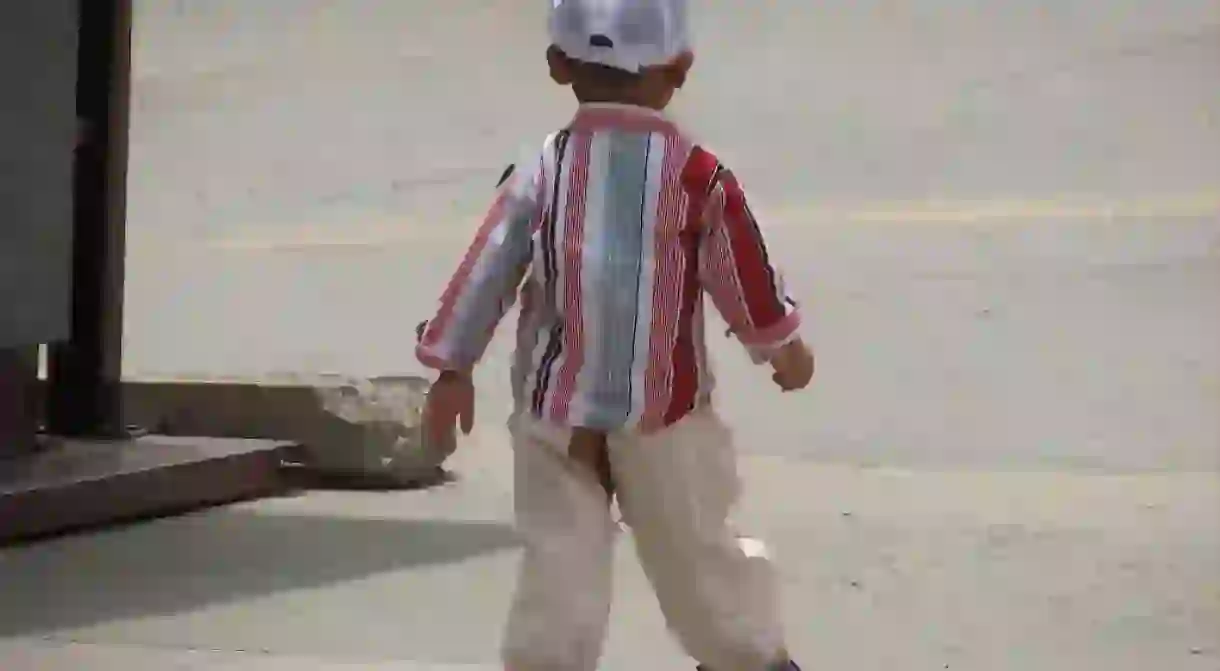Why Do Chinese Babies Wear Split-Crotch Pants?

Split-crotch pants are a funny sight indeed, but there is a strong reason behind their once-proliferation in the Middle Kingdom.
For those who have visited China, it’s often one of their favorite phenomenons: babies and toddlers walking around with their butt cracks hanging out, some even squatting directly on the street to relieve themselves.
The split-crotch pants that make these sights possible have been a child-rearing tradition in China for ages. In fact, the pants used to be the sole tool in potty training before diapers gained traction in the country.

Though their appearance is jolting to foreigners, the split-crotch pants, or kai dang ku in Chinese, are practical and effective. While Western parents spend hundreds to thousands of dollars on disposable diapers a year, adding up to 3.5 million tons of waste per year in the U.S. alone, Chinese parents need only buy a few pairs of split-crotch pants for their child’s whole toddler-hood.
The huge economic advantage of split-crotch pants is one thing that led to their popularity in the first place. In pre-Mao China, cotton and water – two key components of diapers – were scarce and better used to agrarian ends. People, on the other hand, were abundant.

In those days, babies were raised by the whole family, not just the parents. So when a child needed to relieve him or herself, there was always a mother, an auntie, a grandma, or someone else on hand to help the child into the squatting position and clean up after the fact.
Of course, split-crotch pants are becoming ever rarer in China, particularly in the cities. Now it’s not uncommon to see a diaper poking out of the opening in the pants or pants with entirely closed crotches.
Just as economics forced the original popularity of split-crotch pants, so have economics ushered in the likely end of their days. Diapers have been marketed aggressively in China since the country’s opening in 1989 and have become one of the country’s many unlikely status symbols.

Putting your baby in diapers demonstrates two things: wealth and busyness. Diapers, as previously noted, are a much more expensive alternative to split-crotch pants. Buying them demonstrates to the world that you don’t need to cut costs when it comes to your child. And when the mothers, aunties, grandmas and others are busy at work, who is there to help the child squat and wipe? Thus, diapers become the only option.
Still, some are clinging to the tradition of the kai dang ku. As time has proven, babies reared in split-crotch pants can be potty trained up to 14 months earlier than their diaper-wearing friends, the pants making the child an active participant in his own bodily functions and encouraging his earlier graduation from squatting on the street to squatting over a toilet.
So, though the pants may look funny, they are a deep-rooted Chinese tradition and one that shouldn’t be given up without a fight.













